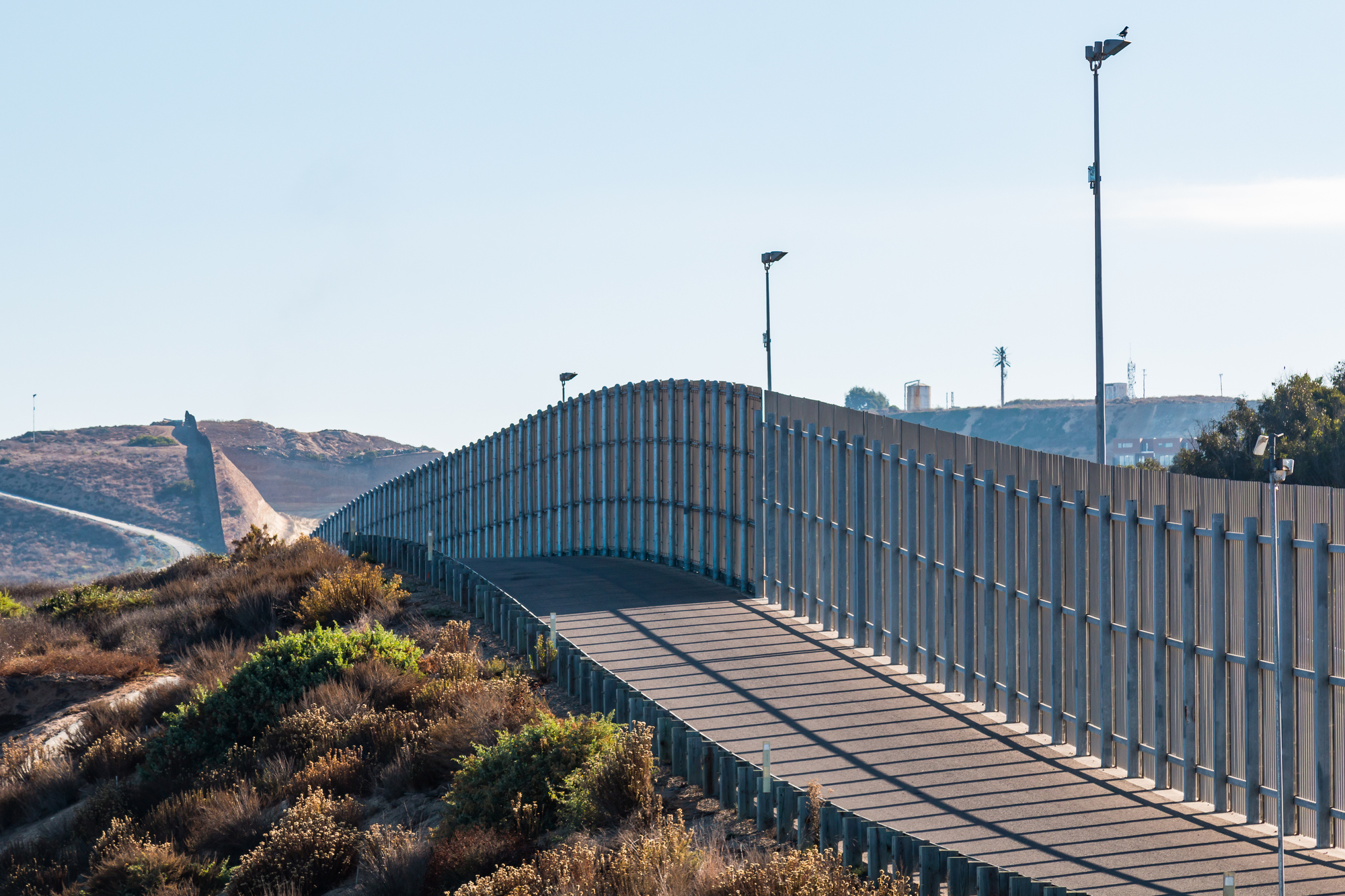
- Details
- By Native News Online Staff
WASHINGTON — Lawyers for the federal government on Tuesday asked a D.C. judge to reject a lawsuit filed by Native Americans to halt construction of the U.S.-Mexico border wall.
The lawsuit, filed last month by a group of five Kumeyaay Nation tribes, alleges that construction of the border wall has hampered their ability to practice their religious beliefs and cultural traditions. The tribes sued the three government agencies tasked with building the wall, asking the D.C. district court for a temporary restraining order and a preliminary injunction to stop construction of the wall.
On Tuesday, lawyers from the U.S. Department of Justice filed their response, arguing the court should deny the tribes’ request because their lawsuit is not likely to succeed based on its legal merits.
The tribes’ legal claims “undermine Congress’s decision to prevent litigation from delaying border infrastructure construction,” the DOJ’s legal filing states, citing the broad authority Congress has continuously granted the Secretary of the Department of Homeland Security (DHS) since first passing section 102 of the Illegal Immigration Reform and Immigrant Responsibility Act of 1996 (IIRIRA).
Under the IIRIRA, the Secretary of Homeland Security has the authority to waive various laws in order to expedite the construction of border security projects.
The government also argues that the tribes’ claims under the Religious Freedom Restoration Act (RFRA) and the First Amendment are likely to fail in court. The Supreme Court and “numerous other” courts have rejected similar RFTA claims by Indian tribes to federal infrastructure projects on federal property, even in circumstances where the construction harmed Indian religious practices, the response said.
The filing notes that another district court recently rejected many of the same arguments in a similar lawsuit filed in August by another Kumeyaay tribe, the La Posta Band of Diegueno Mission Indians.
The DOJ lawyers for three agencies charged with building the border wall — Homeland Security, Customs and Border Protection (CBP) and the Army Corps of Engineers — say the government has “extensively consulted” with tribes about the border wall by sharing information, considering their input and adopting specific measures suggested by the tribes and their advocates. The government said it conducted online tribal consultations in May and June, as well as a series of letters, site visits and a webinar over the past few months.
Beginning Aug. 28, CBP began holding regular bi-weekly conference calls with the Kumeyaay tribes to discuss upcoming construction activities, tribal concerns and potential measures to minimize the impact of construction, the filing notes. The government also claims it has secured tribal cultural monitors affiliated with the Kumeyaay tribes and surveyed areas identified by the tribes as potentially containing cultural items or ancestral remains.
The treatment of human remains is especially important in Kumeyaay traditional religious beliefs because a person’s soul cannot rest in the afterlife if parts of his or her body are separated from each other after death. The destruction or disturbance of human remains at Kumeyaay burial sites is considered sacrilegious.
The five Kumeyaay tribes suing the federal government on behalf of their members are the Manzanita Band of Kumeyaay Nation, the Campo Kumeyaay Nation, the Ewiiaapaayp Band of Kumeyaay Indians, the Iipay Nation of Santa Ysabel and the Sycuan Band of the Kumeyaay Nation.
The tribes are joined in the lawsuit by John Elliot, a member of the Manzanita Band who practices traditional Kumeyaay culture and religion and uses the areas near the border wall for ceremonial purposes, as well as the Kumeyaay Heritage Preservation Council, which represents nine Kumeyaay tribes and is charged with protecting their religious and ceremonial life.
More Stories Like This
NCAI Passes Two Emergency Resolutions on Immigration Enforcement ActivitiesChickasaw Lighthorse Police Officer named Indian Country Law Enforcement Officer of the Year
Indian Gaming Association Rallies Broad Coalition Against Sports Event Contracts It Calls Illegal Threat to Tribal Sovereignty
Navajo Resources and Development Committee Issues Notice on Livestock Inspection Requirements
American Prairie, Tribal Coalition Files Protest Over Rescinded Grazing Rights
Help us defend tribal sovereignty.
At Native News Online, our mission is rooted in telling the stories that strengthen sovereignty and uplift Indigenous voices — not just at year’s end, but every single day.
Because of your generosity last year, we were able to keep our reporters on the ground in tribal communities, at national gatherings and in the halls of Congress — covering the issues that matter most to Indian Country: sovereignty, culture, education, health and economic opportunity.
That support sustained us through a tough year in 2025. Now, as we look to the year ahead, we need your help right now to ensure warrior journalism remains strong — reporting that defends tribal sovereignty, amplifies Native truth, and holds power accountable.
 The stakes couldn't be higher. Your support keeps Native voices heard, Native stories told and Native sovereignty defended.
The stakes couldn't be higher. Your support keeps Native voices heard, Native stories told and Native sovereignty defended.
Stand with Warrior Journalism today.
Levi Rickert (Potawatomi), Editor & Publisher

